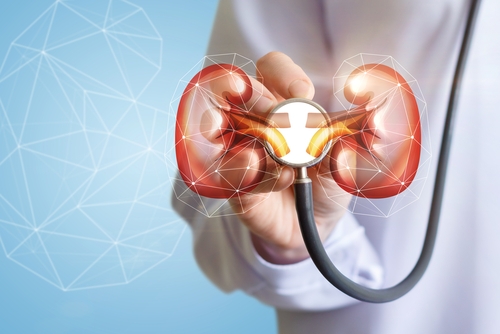Case Report Cites IDPN as Nutritional Tool in CF Patients with Kidney Disease

Delivering nutrients through dialysis could help people with co-occurring cystic fibrosis (CF) and kidney disease meet their nutritional requirements, a recent case report illustrates.
The report, “Intradialytic parenteral nutrition improves nutritional status in a complex cystic fibrosis patient with redo double lung transplant and end-stage renal disease,” was published in the journal BMJ Case Reports.
Dialysis is a medical procedure that replicates some of the functions of the kidneys (e.g., filtering the blood), and is used to help manage kidney failure.
Intradialytic parenteral nutrition (IDPN) refers to nutrients being added to the blood during dialysis. IDPN can be helpful when a person is unable to get all the nutrients they need via their digestive tract.
Both CF and kidney disease are characterized by altered metabolism, generally resulting in abnormally high energy requirements. As such, nutritional management is important for these patients. To date, there are no records in published scientific literature of IDPN being used to manage malnutrition in someone with both kidney disease and CF.
The new report details the case of a 38-year-old female patient with both CF and kidney disease, as well as other conditions that most likely developed secondary to these diseases or their treatments. The patient had undergone double lung transplants (one in 2012, and a redo in 2013).
Following an extended hospitalization for abdominal surgery in late 2017, the patient developed kidney failure and was started on dialysis.
The patient was malnourished and had a very low appetite, as well as chronic nausea and anorexia. A feeding tube inserted directly into the stomach (percutaneous endoscopic gastrostomy, abbreviated PEG) was introduced, but failed to adequately provide the patient the needed nutrition.
“With malnutrition an ongoing and pressing issue, IDPN was introduced as a supplementary management option,” the researchers wrote.
IDPN was started during scheduled dialysis sessions, three times per week.
During the subsequent year, the patient’s nutritional status improved, as evidenced by a dry weight gain of 13.6% (4.5 kg, almost 10 pounds). Additionally, according to the Patient-Generated Subjective Global Assessment (a validated tool for nutrition assessment), the patient’s malnutrition improved from “severe” to “moderate” during this time.
“In the 12 months following IDPN initiation, IDPN and PEG feeds were crucial, together providing the majority of [the patient’s] nutrition,” the researchers wrote.
The patient also experienced subjective improvements. “I was quite desperate to put on some weight and this (IDPN) was giving me extra calories which I so desperately needed,” the patient said in the report. “I think it has impacted it (my quality of life) in a positive way in that I have gained some weight since starting IDPN, and through gaining weight I’ve got more energy to do things. I’m actually getting out and enjoying some life.”
The team noted some challenges in balancing nutritional requirements for CF and kidney disease in the patient, and in optimizing the IDPN protocol. In particular, people with CF tend to have too-low levels of sodium, so sodium supplementation may be warranted. However, increased sodium levels can put stress on the kidneys, so sodium intake often is limited in the context of kidney disease.
Ultimately, the decision was made to optimize protein and energy intake, as these were considered the most crucial part of the nutritional care plan for the patient. The decision was made not to provide the patient with sodium supplements, though the team noted a lack of research into how to best handle salt intake in people with both CF and kidney disease. As such, future studies are needed to determine the best management strategy in this patient population.
Overall, this case report demonstrates that IDPN could be helpful to manage malnutrition in people with both CF and kidney disease.
“In this case study, the use of IDPN appeared to provide a helpful strategy to address severe malnutrition and improve quality of life for the patient,” but “further investigations are needed to optimise care for patients with these co-occuring conditions,” the team concluded.
The researchers also emphasized that the management of patients with coexisting CF and kidney disease “requires patient engagement in treatment planning, and a multidisciplinary team approach for clinical judgement in the absence of guidelines.”







